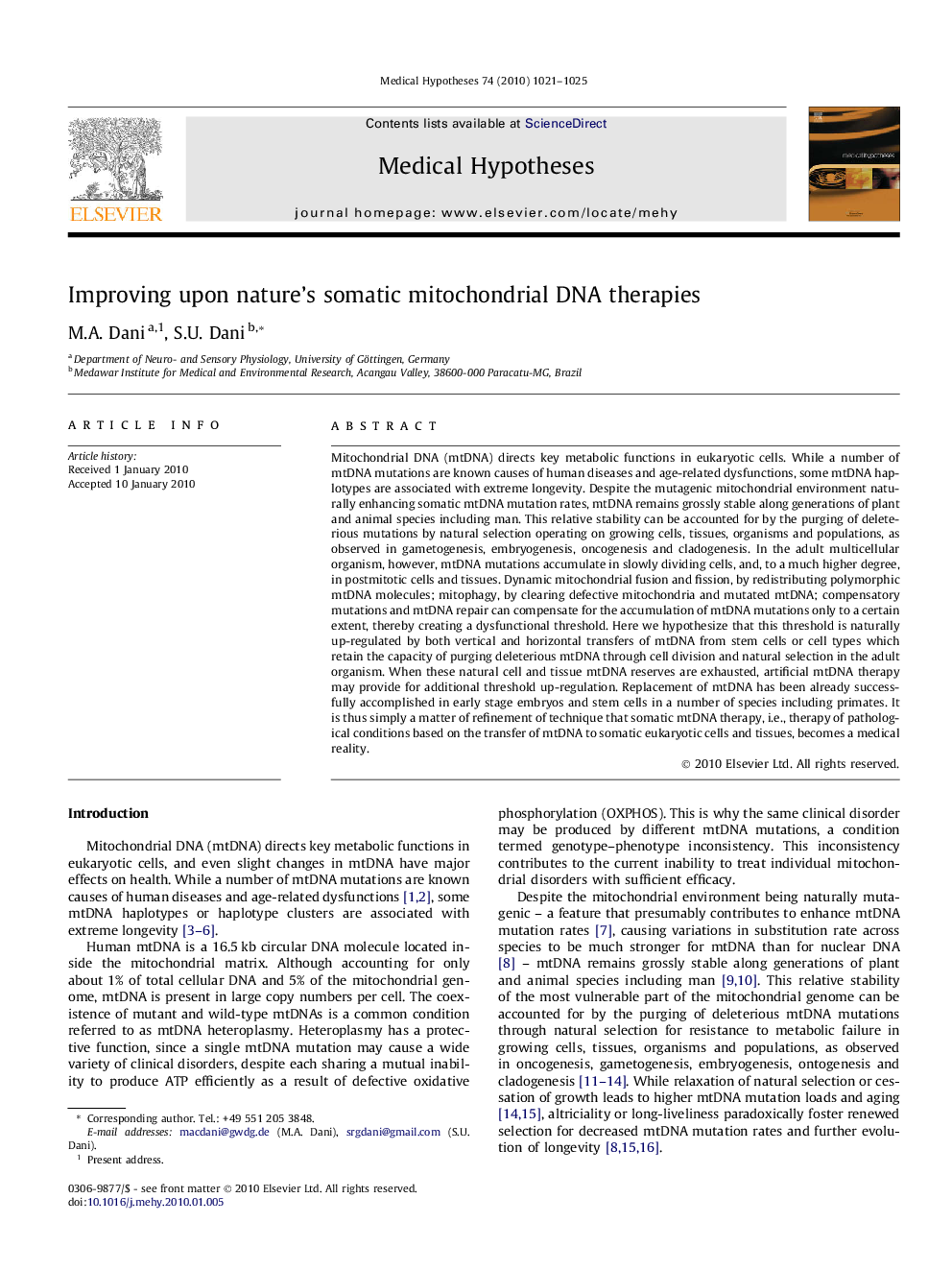| Article ID | Journal | Published Year | Pages | File Type |
|---|---|---|---|---|
| 2489785 | Medical Hypotheses | 2010 | 5 Pages |
Abstract
Mitochondrial DNA (mtDNA) directs key metabolic functions in eukaryotic cells. While a number of mtDNA mutations are known causes of human diseases and age-related dysfunctions, some mtDNA haplotypes are associated with extreme longevity. Despite the mutagenic mitochondrial environment naturally enhancing somatic mtDNA mutation rates, mtDNA remains grossly stable along generations of plant and animal species including man. This relative stability can be accounted for by the purging of deleterious mutations by natural selection operating on growing cells, tissues, organisms and populations, as observed in gametogenesis, embryogenesis, oncogenesis and cladogenesis. In the adult multicellular organism, however, mtDNA mutations accumulate in slowly dividing cells, and, to a much higher degree, in postmitotic cells and tissues. Dynamic mitochondrial fusion and fission, by redistributing polymorphic mtDNA molecules; mitophagy, by clearing defective mitochondria and mutated mtDNA; compensatory mutations and mtDNA repair can compensate for the accumulation of mtDNA mutations only to a certain extent, thereby creating a dysfunctional threshold. Here we hypothesize that this threshold is naturally up-regulated by both vertical and horizontal transfers of mtDNA from stem cells or cell types which retain the capacity of purging deleterious mtDNA through cell division and natural selection in the adult organism. When these natural cell and tissue mtDNA reserves are exhausted, artificial mtDNA therapy may provide for additional threshold up-regulation. Replacement of mtDNA has been already successfully accomplished in early stage embryos and stem cells in a number of species including primates. It is thus simply a matter of refinement of technique that somatic mtDNA therapy, i.e., therapy of pathological conditions based on the transfer of mtDNA to somatic eukaryotic cells and tissues, becomes a medical reality.
Related Topics
Life Sciences
Biochemistry, Genetics and Molecular Biology
Developmental Biology
Authors
M.A. Dani, S.U. Dani,
